Service Hierarchies
Services can be arranged in hierarchies for organisational and management convenience:
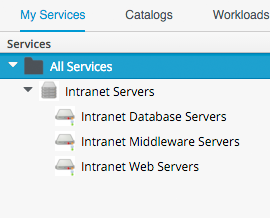
In this example we have three child Services, representing the three tiers of our simple intranet platform.
The Database Tier:
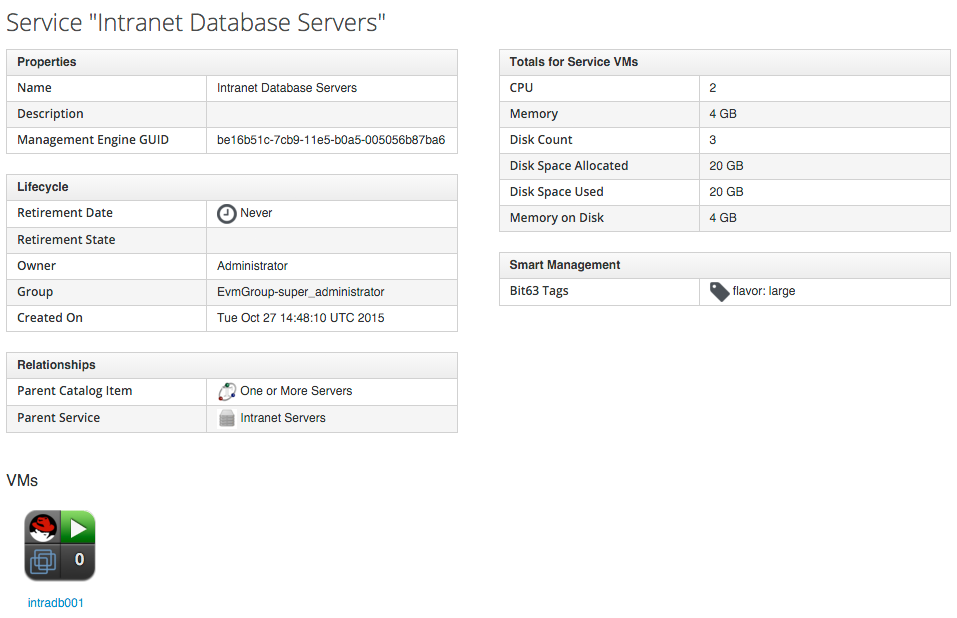
The Middleware Tier:
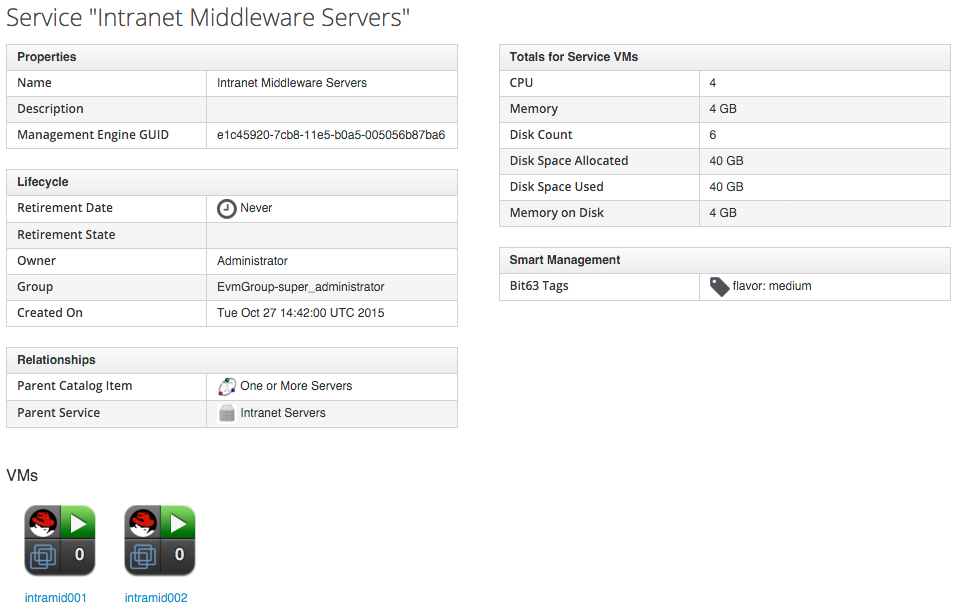
The Web Tier:
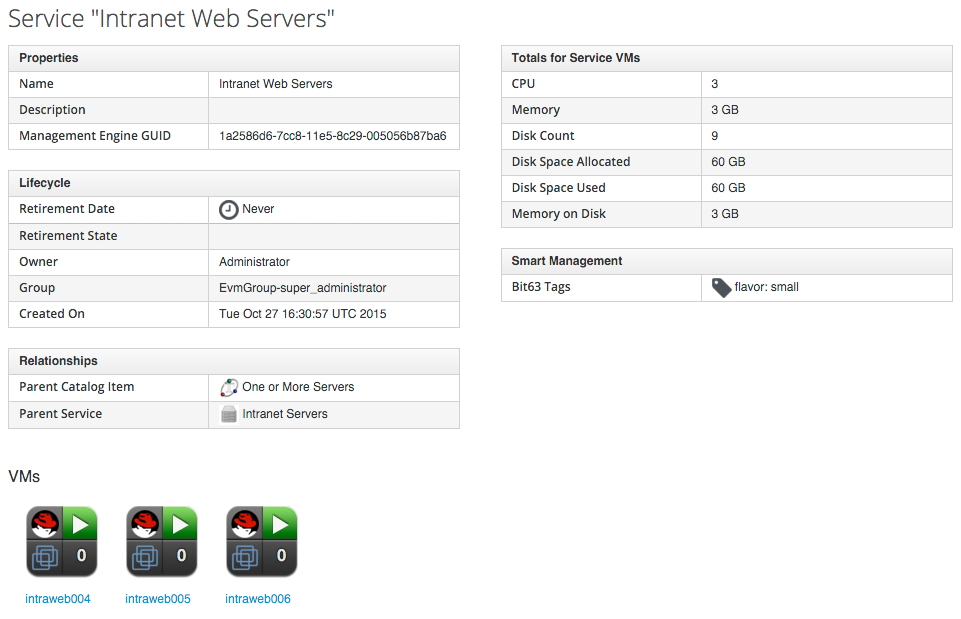
When we view the parent Service, we see that it contains details of all child Services, including the cumulative CPU, Memory and Disk Counts:
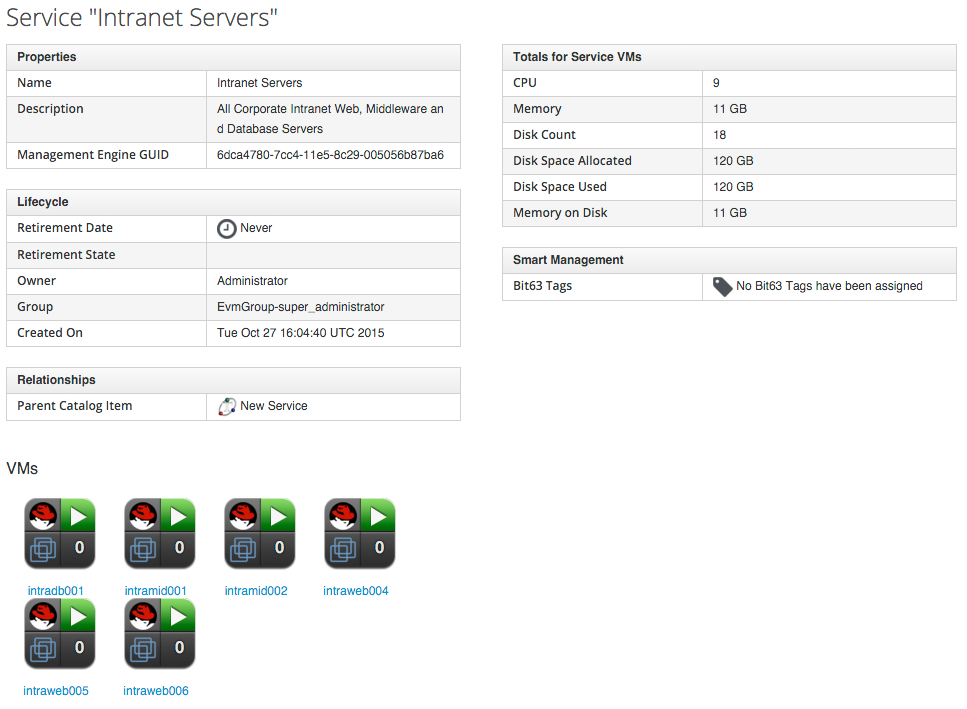
Organising Our Services
To make maximum use of Service hierarchies, it is useful to be able to create empty Services, and to be able to move both Services and VMs into existing Services.
Creating An Empty Service
We could create a new Service directly from automation, using the lines:
new_service = $evm.vmdb('service').create(:name => "My New Service")
new_service.display = true
For this example though, we'll create our new empty Service from a Service Catalog.
State Machine
First we create a new Instance of the /Service/Provisioning/StateMachines/ServiceProvision_Template Class, but we comment out most entries:
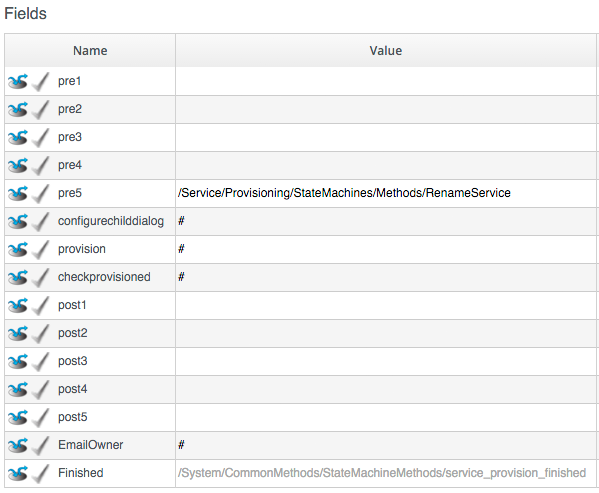
We'll call this Instance EmptyService.
Method
The pre5 stage of this State Machine is a Relationship to an Instance/Method containing the following code:
begin
service_template_provision_task = $evm.root['service_template_provision_task']
service = service_template_provision_task.destination
dialog_options = service_template_provision_task.dialog_options
if dialog_options.has_key? 'dialog_service_name'
service.name = "#{dialog_options['dialog_service_name']}"
end
if dialog_options.has_key? 'dialog_service_description'
service.description = "#{dialog_options['dialog_service_description']}"
end
$evm.root['ae_result'] = 'ok'
exit MIQ_OK
rescue => err
$evm.log(:error, "[#{err}]\n#{err.backtrace.join("\n")}")
$evm.root['ae_result'] = 'error'
$evm.root['ae_reason'] = "Error: #{err.message}"
exit MIQ_ERROR
end
The full script is available here
Service Dialog
We create a simple Service Dialog with element names service_name and service_description:
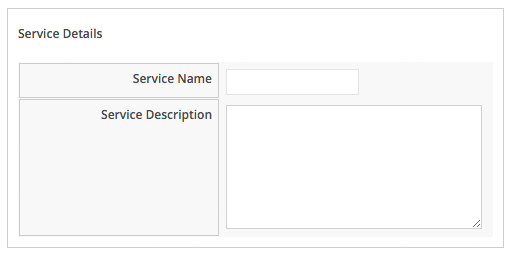
Putting It All Together
Finally we assemble all of these parts by creating a new Service Catalog called General Services, and a new Catalog Item of type Generic:
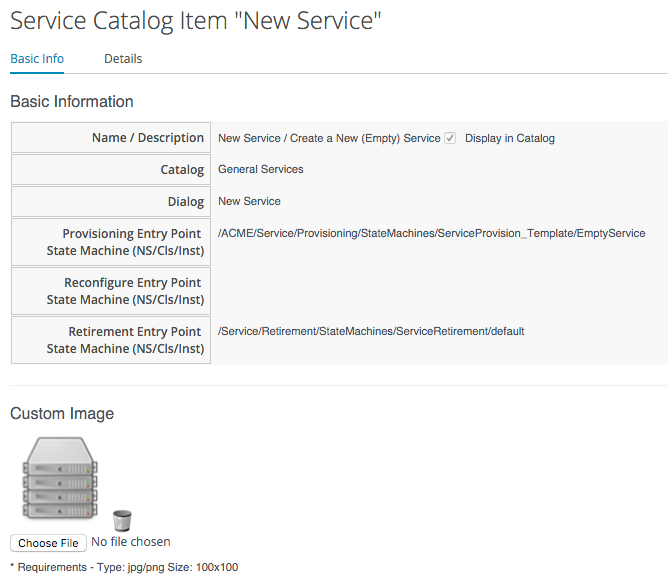
We can order from this Service Catalog Item to create our new empty Services.
Adding VMs and Services to Existing Services
We'll provide the ability to move both Services and VMs into existing Services, from a button:

The button will present a drop-down list of existing Services that we can add as a new parent Service:
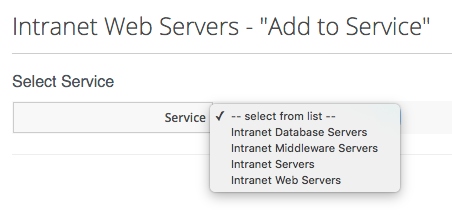
Button
Service Dialog
We create a simple Service Dialog with dynamic drop-down element name service:
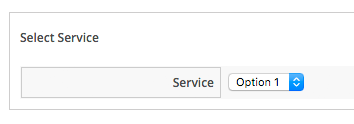
Dialog Element Method
The dynamic drop-down element in the Service Dialog calls a Method list_services. We only wish to display a Service in the drop-down list if the user has permissions to see it via their RBAC filter. We define methods to retrieve a user's RBAC filter array, and to check that a service has a tag that matches the filter:
def get_current_group_rbac_array(user, rbac_array=[])
unless user.current_group.filters.blank?
user.current_group.filters['managed'].flatten.each do |filter|
next unless /(?<category>\w*)\/(?<tag>\w*)$/i =~ filter
rbac_array << {category=>tag}
end
end
rbac_array
end
def service_visible?(rbac_array, service)
rbac_array.each do |rbac_hash|
rbac_hash.each {|category, tag| return false unless service.tagged_with?(category, tag)}
end
$evm.log(:info, "Service: #{service.name} is visible to this user")
true
end
When we enumerate the Services, we check on visibility to the user before adding to the drop-down list:
$evm.vmdb(:service).find(:all).each do |service|
$evm.log(:info, "Found service: #{service.name}")
if service_visible?(rbac_array, service)
visible_services << service
end
end
if visible_services.length > 0
if visible_services.length > 1
values_hash['!'] = '-- select from list --'
end
visible_services.each do |service|
values_hash[service.id] = service.name
end
else
values_hash['!'] = 'No services are available'
end
The full script is available here
Button Method
The main Instance/Method called from the button adds the current VM or Service, into the Service selected from the drop-down list. We wish to be able to call this from a button on either a Service object type, or a VM and Instance object type. As before, we identify our context using $evm.root['vmdb_object_type'].
If we are adding a VM to an existing Service, we should allow for the fact that the VM might itself have been provisioned from a Service. We detect any existing Service membership, and if the old Service is empty after we move the VM, we delete the Service from the VMDB.
begin
parent_service_id = $evm.root['dialog_service']
parent_service = $evm.vmdb('service').find_by_id(parent_service_id)
if parent_service.nil?
$evm.log(:error, "Can't find service with ID: #{parent_service_id}")
exit MIQ_ERROR
else
case $evm.root['vmdb_object_type']
when 'service'
$evm.log(:info, "Adding Service #{$evm.root['service'].name} to #{parent_service.name}")
$evm.root['service'].parent_service = parent_service
when 'vm'
vm = $evm.root['vm']
#
# See if the VM is already part of a service
#
unless vm.service.nil?
old_service = vm.service
vm.remove_from_service
if old_service.v_total_vms.zero?
old_service.remove_from_vmdb
end
end
$evm.log(:info, "Adding VM #{vm.name} to #{parent_service.name}")
vm.add_to_service(parent_service)
end
end
exit MIQ_OK
rescue => err
$evm.log(:error, "[#{err}]\n#{err.backtrace.join("\n")}")
exit MIQ_ERROR
end
The full script is available here
Putting It All Together
Finally we create two Add to Service buttons, one on a Service object type, and one on a VM and Instance object type. We can go ahead and organise our Service hierarchies.
Exercise: filter the list of services presented in the drop-down to remove the current service - we would never wish to add a Service as its own parent.